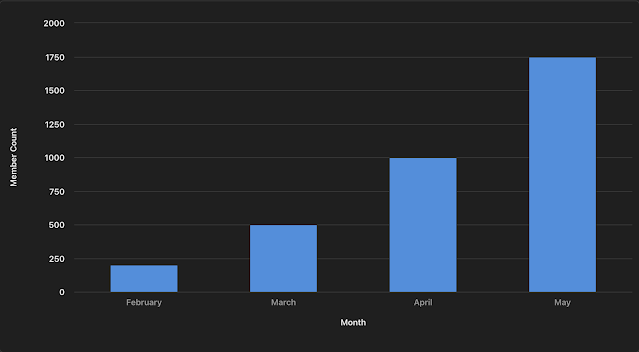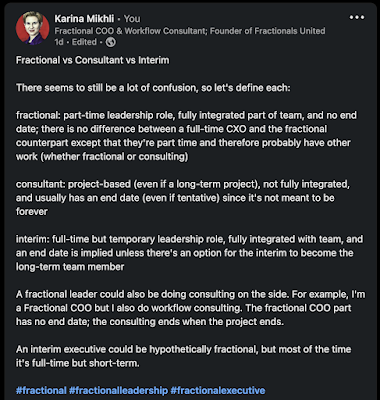Rest and Recharging (Karina Mikhli)
There is one major advantage to being full-time: you get paid time off, and when your employer is closed, like on Memorial Day, it's easy to take advantage of the time off and rest. This is not that easy as a fractional. If you're getting paid on retainer, you may or may not have the luxury of taking time off, depending on your arrangement with your employer, but for those getting paid by the hour, if you don't work, you don't get paid (and yes, that's another reason not to charge hourly, but that's another topic and post). Add to that the potential feast and famine nature of working for yourself, and is it any wonder many of us don't take the time off? I've been there so can totally relate, and it's something I still struggle with. It's one of the major reasons I had gone full-time with one of my fractional clients. But if you think about it objectively: You should be charging enough, whether hourly or retainer, to be able to afford some downti...

.png)

